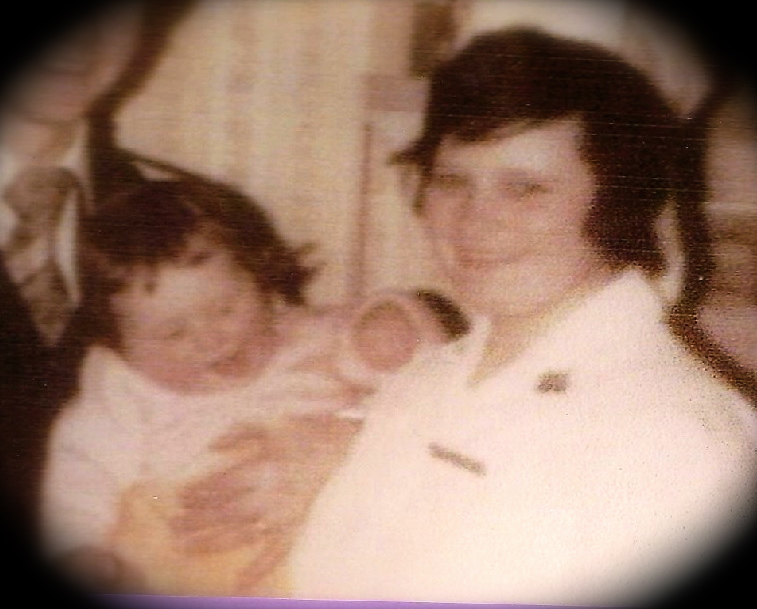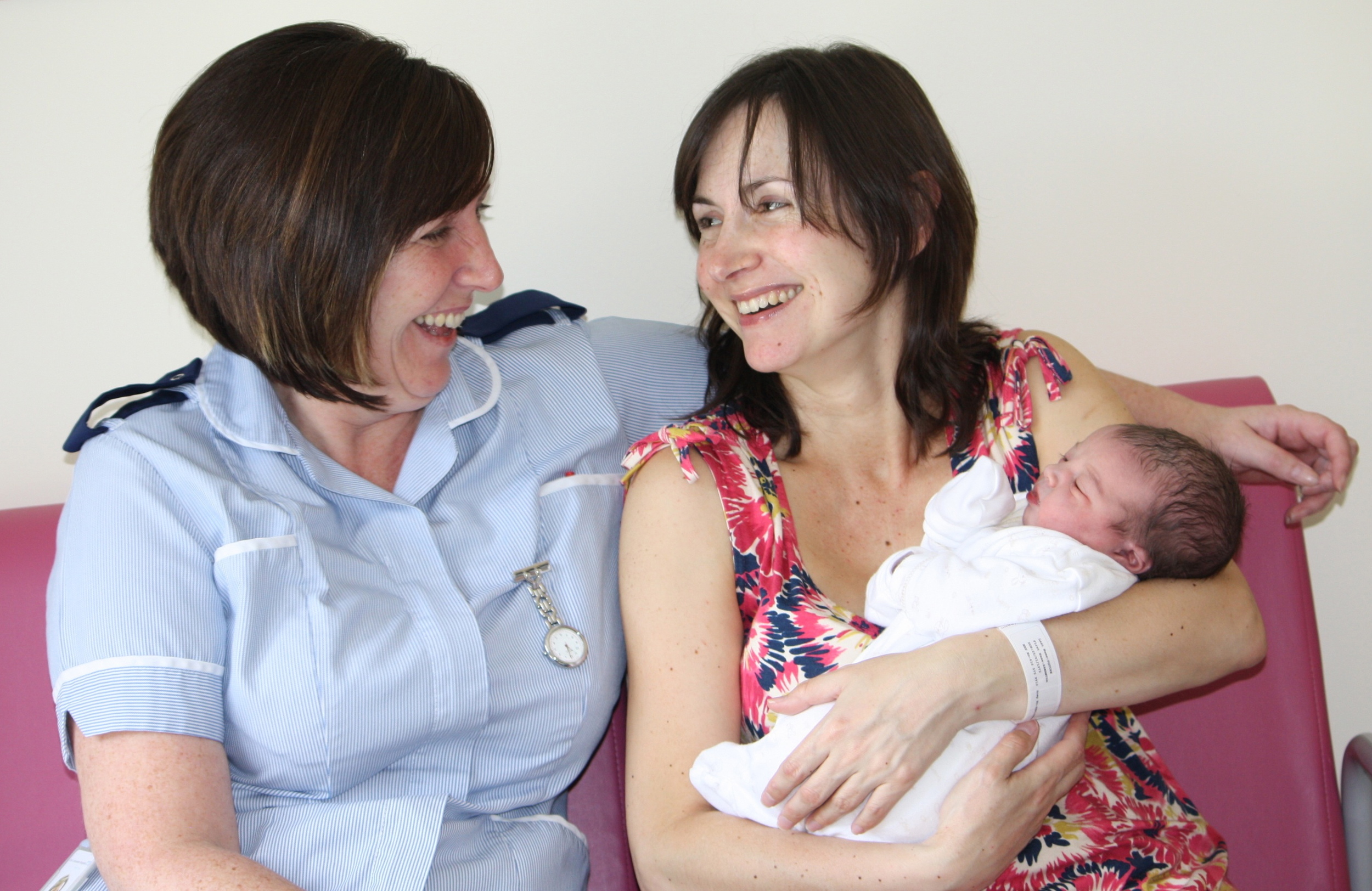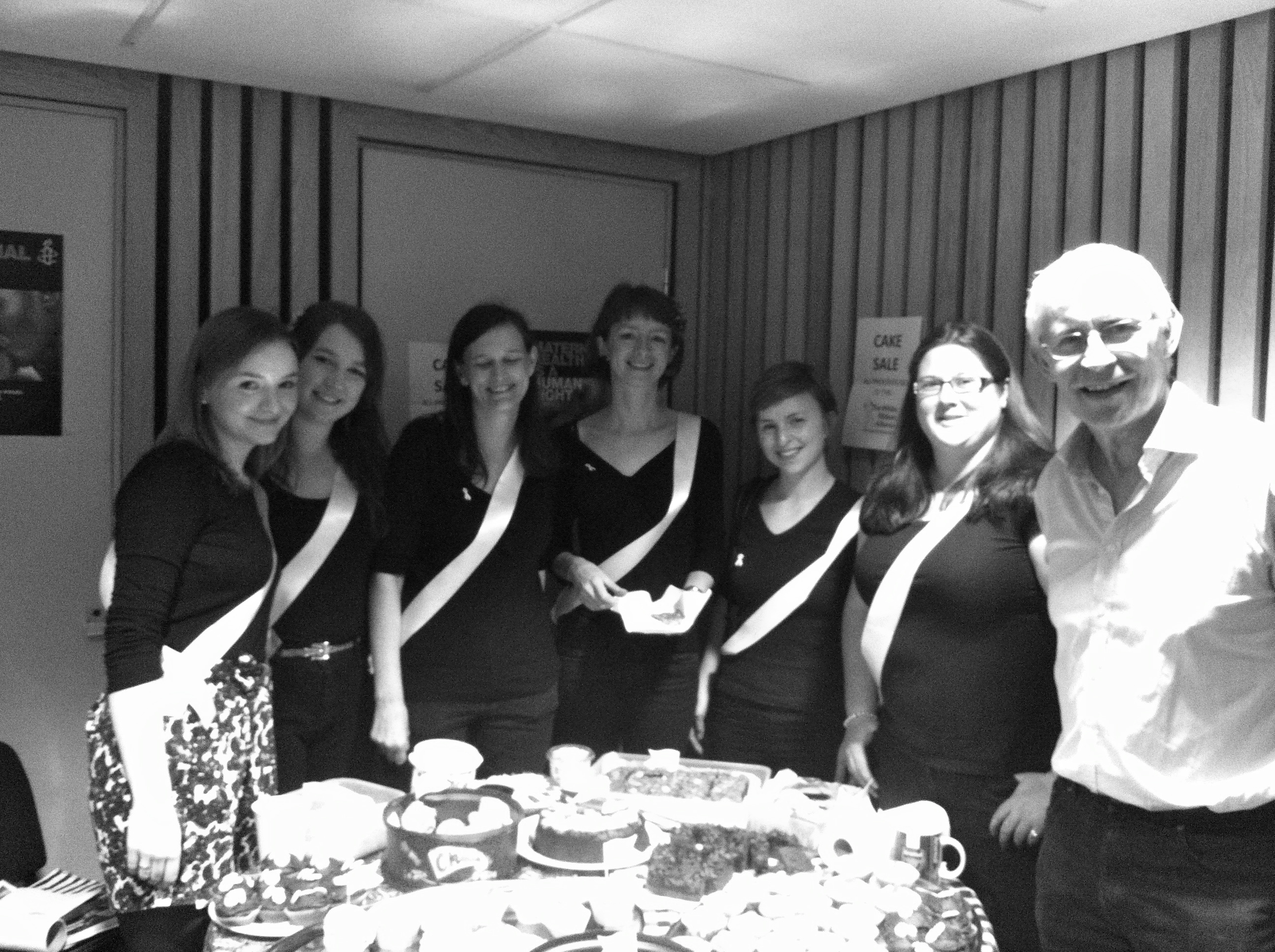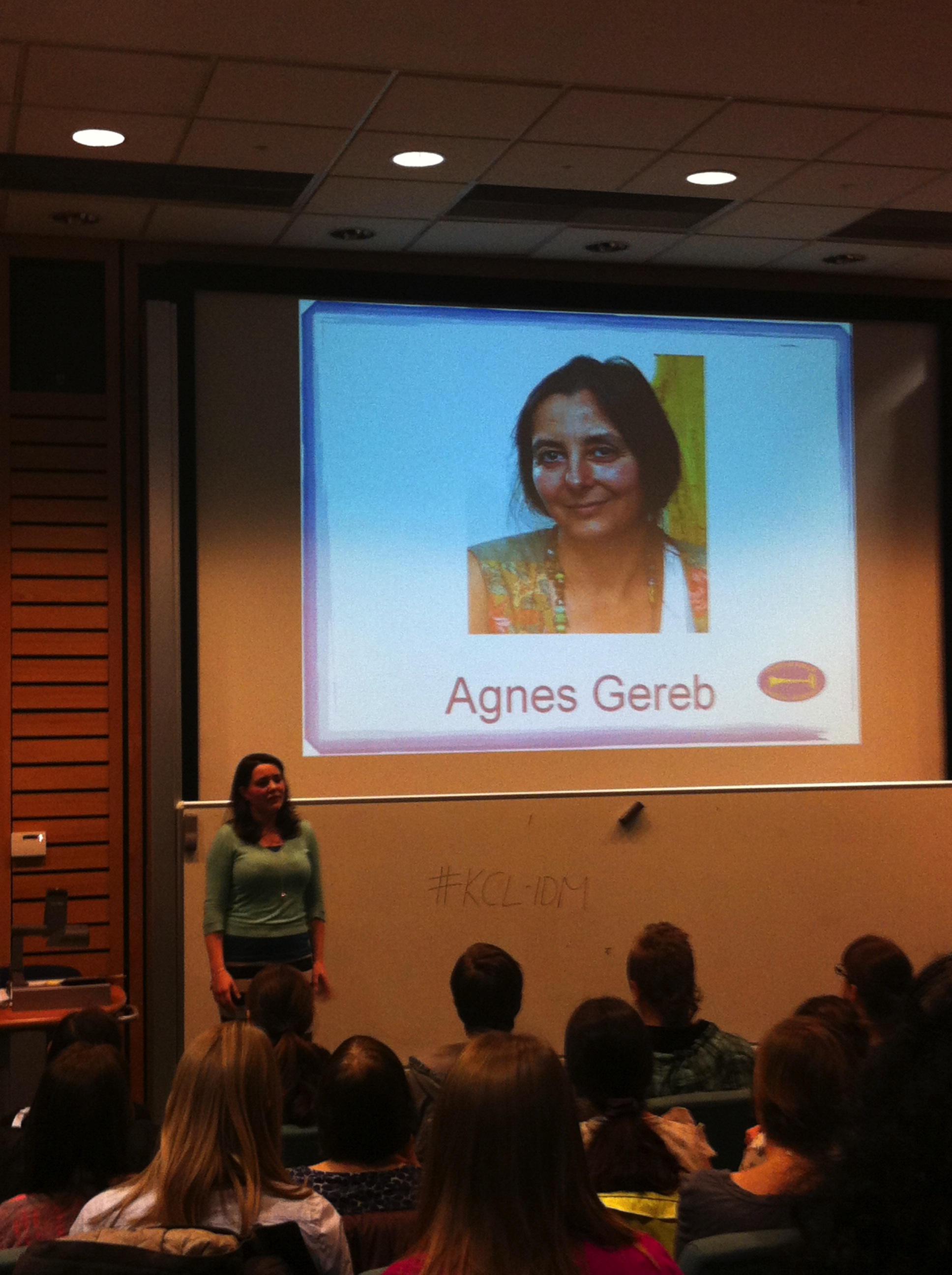Meet Geraldine Butcher: a wee wonder!
/In the theme of 'Nursing and Midwifery History', and after the great response to my last post about Miss Fenton, I thought it would be great to interview a couple of 'midwifery greats' and to publish their stories right here, on Five Girls. Here is the first midwife, the wonderful Geraldine Butcher!
I first met Geraldine at the MAMA Conference last year in Troon, Scotland, and immediately felt a connection with her. Her smiling face beamed across the dinning table, and she made me feel welcome in her country.
Geraldine began nurse training in 1978 and thought she wanted to work in surgery or in coronary care…until she went to the maternity unit during the second year of her training. At that time they were chronically short of midwives and she was often caring for women until the second stage of labour (fills her with horror now but in her naivety she felt trusted, and loved it). Due to this experience, Geraldine decided to become a midwife. However…..that same year she had become instantly broody, which resulted in her sitting her nursing finals 36 weeks pregnant!
When Geraldine's baby son was 7 months old she worked as a staff nurse mainly doing postnatal care of women and babies (that was quite common in those days). When her second child was 3 yrs old she began her midwifery training in the same hospital; completing in November 1987.
So, Geraldine agreed to answer some of my questions, so you can get to know her a bit better too!
Hi Geraldine, thanks for agreeing to be interviewed! Could you describe briefly what your role is at the moment?
Hi Sheena, I am Consultant Midwife in NHS Ayrshire and Arran with a special interest in Normality
How long have you been working in this position, and what do you like most about it?
I have worked in Practice Development since 1996 (although continuously in clinical practice) and was fortunate to gain my Consultant Midwife post in 2007. At this time posts in all but the smallest health boards were created to implement the Midwife Led aspects of the Framework for Maternity Services. The work was called the Keeping Childbirth Natural and Dynamic Programme and I was proud to be the local champion.
Being a Consultant Midwife allows me to keep in touch with clinical practice, research and audit, professional development and education all within a leadership framework. All of these things are very important to me and I would hate to lose any aspect. I can change local practice (although that brings its own challenges on occasions) and also influence national strategy and developments.
You have been a midwife for more than 25 years, do you feel maternity services have changed in that time?
I have been a midwife more than 25 years but have worked in maternity services for 30 years. I loved my maternity placement as a student nurse (everyone had to be dual trained then) and got lots of responsibility during my placement. I completed my nurse training sitting my finals at 36 weeks gestation as my maternity secondment had left me so broody. During my second pregnancy I moved back home to Ayrshire. Minutes after giving birth my husband jokingly asked if there were any jobs (I hope he was anyway!) Turned out they were so short of midwives they employed a few staff nurses. When my son was 7 months old I started working in maternity care. Again I did everything but listen to fetal hearts in the ward areas but was not utilized in labour ward, which at least was something. In those days accountability and risking registrations wasn’t really a discussion topic!
In 1985 I started my midwifery training and was extremely proud when I qualified in 1987. There was still a lot of medicalisation of normal birth at that time, and it is hard to change a system that has been in place for nearly 20 yrs. Women declining any antenatal screening was rare, even though the information they got was little or none. Most women had a late antenatal vaginal examination. Induction rates were higher than they are now with most women being induced by 41 weeks gestation. Interestingly though caesarean section rates were much lower…no epidurals, no FBS, VBAC was the norm and I don’t remember anyone expressing a profound fear of birth or requesting caesarean section. Was that because women knew there was little point in not going with what staff recommended, or was it because they were more philosophical about birth? Women getting out of bed during labour never mind birth was virtually unheard of. Episiotomy rates which had been almost 100% in 1980 were now lower…but don’t you dare have a perineal tear!...intact or episiotomy or you are in trouble. Shaves and enemas were on their way out but ARM on admission and IV infusions remained very common place. All women with very few exceptions had continuous monitoring in labour. Postnatal stay for normal birth was 3 days and midwives visited every day until day 10.
However!....from 1988 we gradually started inching our way back into being lead professional for healthy women having uncomplicated pregnancies…our blue spot ladies didn’t see a consultant at all antenatally and in labour ward our first midwifery cases started……
What improvements do you think maternity services need to make, if any?
We need to listen to women and have stronger focus generally that birth is a psychological emotional and social process, not just a physical one. With limited resources we can't be all things to all people, but care and compassion cost nothing. Women's perspective of risk is not always the same as ours and we need to stop shroud waving.
In order to give sensitive, individualised care however we really need good continuity of carer (and if that’s not possible good continuity of philosophy). We need the right number of staff to care for them and that is not being achieved in many areas now. Stressed staff caring for too many women will make mistakes and communication will fail.
If we can do the above then everything else should fall into place (rose tinted glasses maybe but need to hope)
As a midwifery leader, how do like to influence future generations of midwives?
I think I do my wee bit locally by speaking to student midwives but I think social media is a great way to give snippets of good quality information, or provide constructive comment and suggestions with potential to reach many more students or those thinking about midwifery as a career. It is amazing the number of young people on twitter and actively using it and tweetchat. Perceptions of hierarchy disappear when you are behind a computer screen so they can challenge safely..and they do. MAMA conference recently had a large number of student attending and this was very encouraging…they are committed to change and they are the future of maternity care.
I have also published and presented work, which hopefully helps!
Well, thank you SO much Geraldine, for giving us an insight into your early career, your philosophy of maternity care, and your role as a Consultant Midwife! Keep up the great work you are doing; you are making a difference.
If you want to follow Geraldine (she's a avid 'Tweeter') on Twitter, she can be found at @gbutcher17






